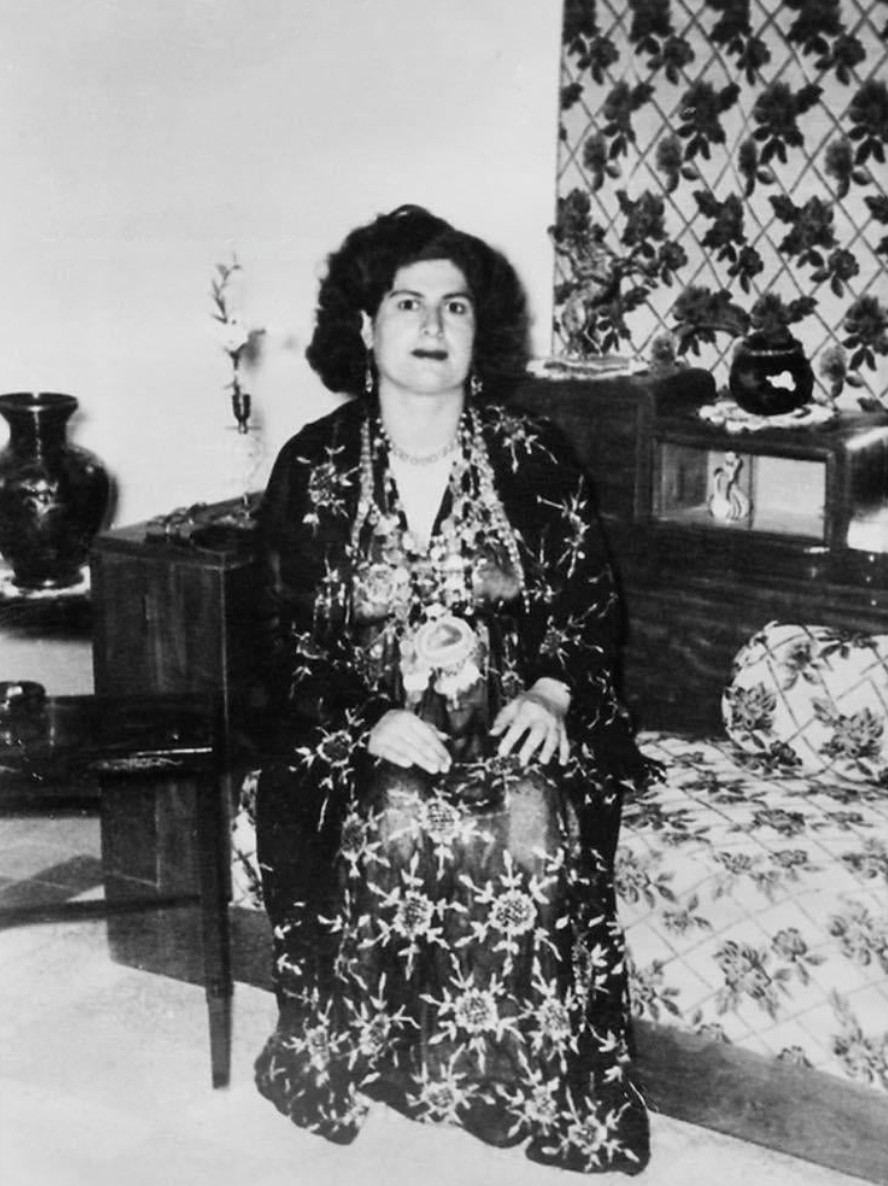Dr. Hiro Khoshnaw was born in Erbil, the capital and historic heart of the Kurdistan Region. She is the daughter of Ali Abdullah, one of the founders of the Kurdistan Democratic Party (KDP), and Akleema Jalizada, the daughter of the renowned Great Mullah (Malay Gawra in Kurdish) of Koy Sanjaq—a prominent town in Erbil Governorate, also known as Koye, located about 75 km east of Erbil. Following an illustrious medical career, Dr. Khoshnaw now serves as the president of the London-based Kurdistan Medical and Scientific Federation (KMSF). She recently spoke exclusively with Kurdistan Chronicle.
A childhood of relocating and adapting
Khoshnaw started off by reminiscing about her early life. She spent most of her early childhood years in Erbil and Koy Sanjaq. “My father was a member of the KDP’s policymaking committee and an active advocate for the Kurdish cause. As a result, we moved from one place to another to avoid imprisonment by the Ba’ath party. In 1968 we moved to Baghdad and lived with the family of my maternal uncle, Masoud Mohammad Jalizada, for a while,” she shared.
She started her primary school in Baghdad. “I remember those days,” she said. “I didn’t speak Arabic, the formal language taught in school, and like many other Kurdish students, I was bullied by some of the Arabic-speaking students. Fortunately, I picked up the language very quickly and soon became one of the top students in my class.”
In March 1970, a peace agreement was signed between the Iraqi government and the Kurdish forces. As a result, Khoshnaw’s father was able to join the family in Baghdad. “It was the first time that we were all together as a family; my father, my mother, my brother, my sister and I. My father became the editor-in-chief for the newspaper al-Taakhi,” she said.
In 1971, Khoshnaw’s father was appointed the governor of the Sulaymaniyah Governorate, which led the family to move there. Here, Khoshnaw continued her education. She recalls fond memories from those days, describing the city as a very lively city with friendly and sociable people. “I am still in contact with my best friend from those days. My brother and I continued our education at an Arabic school in Sulaymaniyah. My late mother taught us the Kurdish alphabet at home, which is how we learnt to read and write in Kurdish,” she said.
In March 1974, with the conflict between the Iraqi government and Kurdish forces restarting, Khoshnaw’s family left Sulaymaniyah and joined her father in the mountains of Choman and Nawprdan, currently lies in the Erbil Governorate, which was known as the capital of the September Revolution. A few months later, her family, along with a few other Kurdish families, fled Kurdistan to escape the increasingly vicious attacks by the Iraqi army, seeking refuge in Iran.
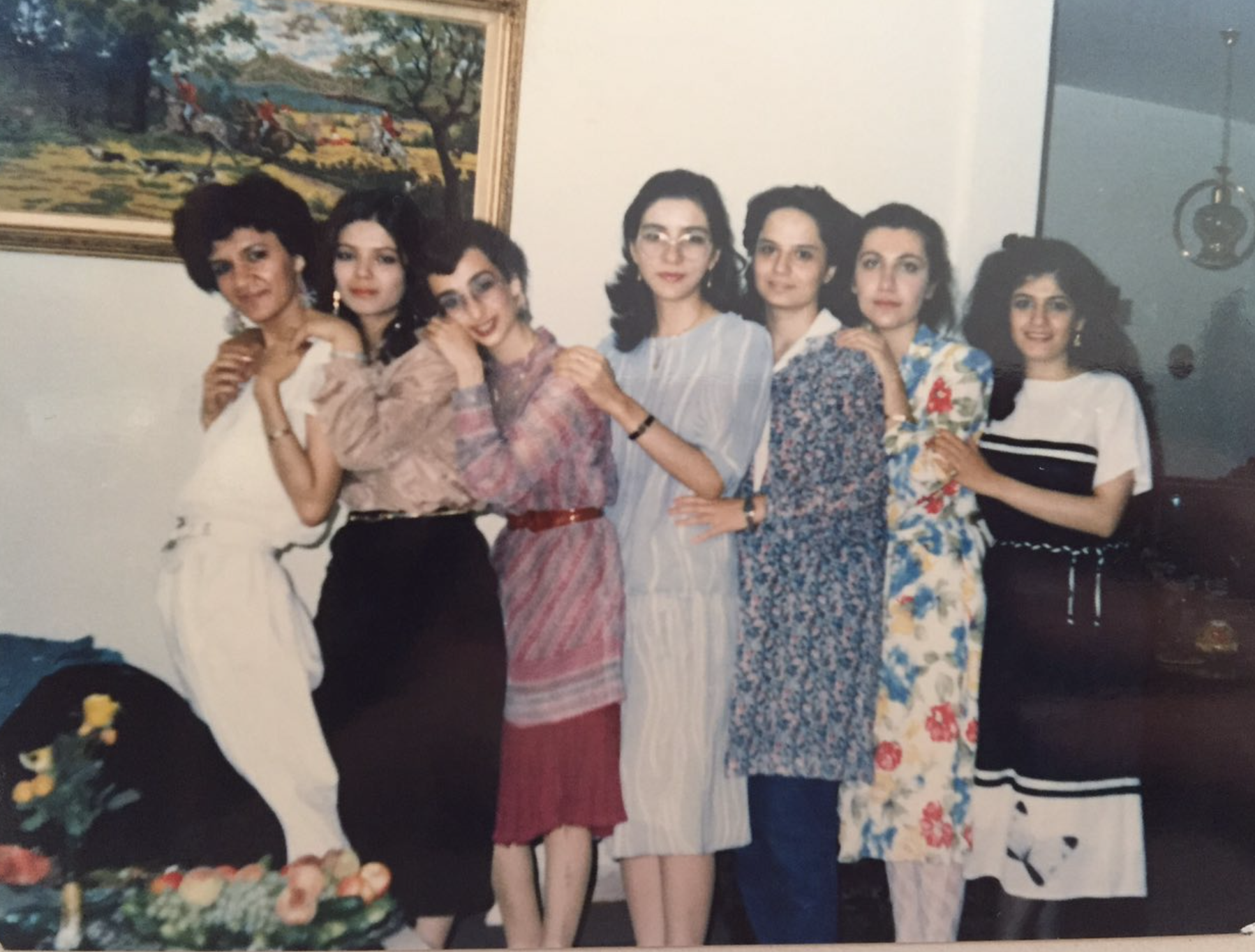
Iran and the UK
After the 1975 collapse of the Kurdish uprising, they stayed in Iran until 1990. Initially they lived in Urmia in West Azerbaijan Province before relocating to Karaj, near Tehran.
In Iran, Khoshnaw was once again faced with the challenges of adapting to a new language and culture. “I remember the first days of secondary school in Urmia, when I had a fantastic math teacher who was very supportive and encouraging. With her support, I became confident and was able to progress. By the time I reached high school, I had mastered Farsi and the other subjects to the extent that in the final year I achieved the highest grade in all eight baccalaureate subjects and became the top student in the entire country,” she told Kurdistan Chronicle.
In 1984, Khoshnaw took the university entrance exam and was offered a place at the Tehran University of Medical Sciences, graduating in 1990. But life as a refugee in Iran was full of challenges and uncertainty, and after completing her internship in Iran, she moved to the UK to pursue a career in medicine.
After passing the Professional and Linguistic Assessment Board examination – the successful completion of which is mandatory for overseas doctors to practice medicine in the UK – she started her first job in the National Health Service (NHS) in August 1992 as a junior doctor. Then, in 1995, she started her higher specialist training in general internal and geriatric medicine. In December 2000, she obtained the Certificate of Completion of Specialist Training and in April 2001 she became a consultant physician and geriatrician at the Royal Surrey NHS Foundation Trust, in Guildford, Surrey, where she currently resides.
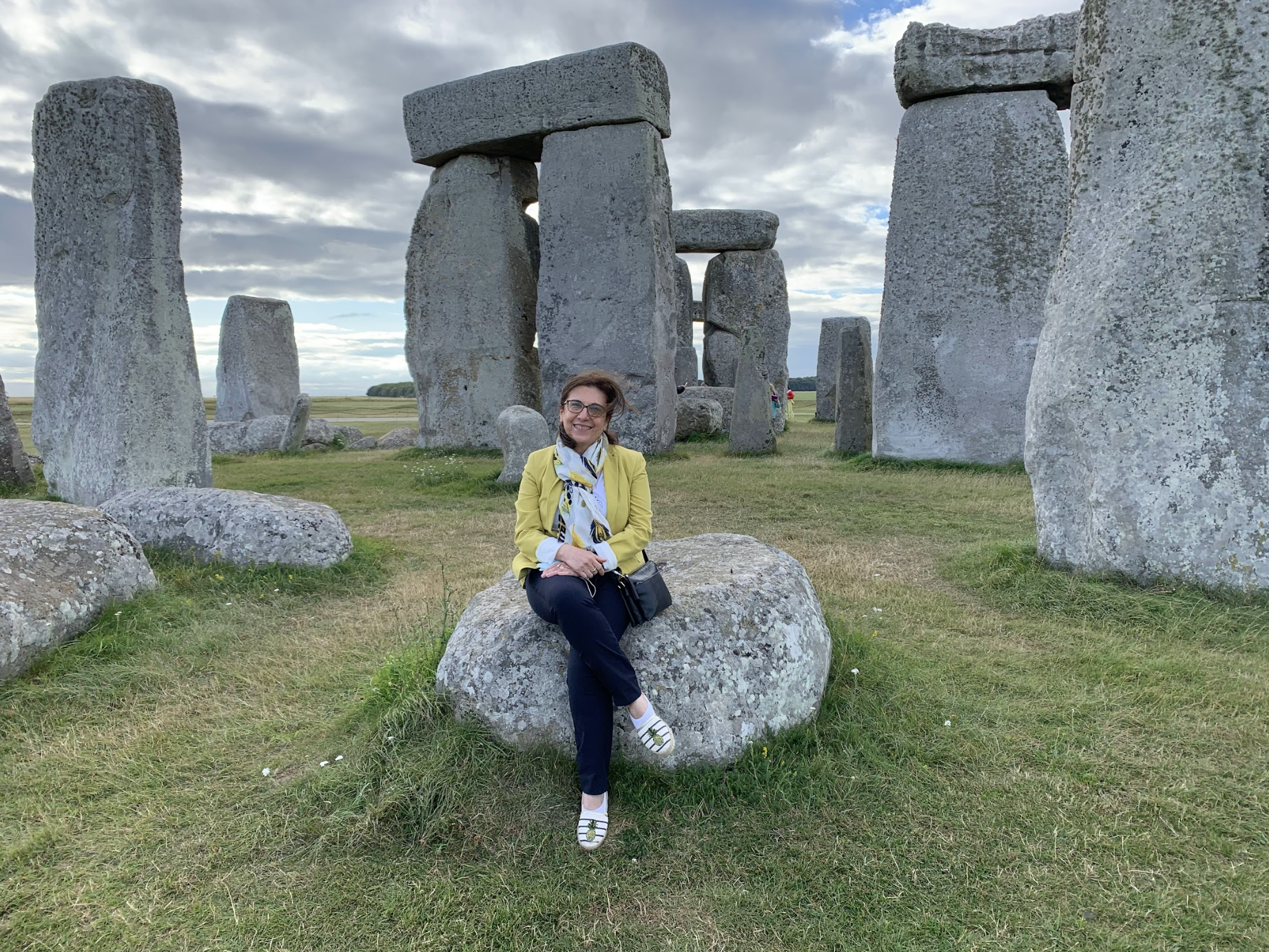
Importance of Kurdish family
Khoshnaw credits her career success to her family, especially her parents. She describes her mother as “the kindest person one could imagine.” A devoted mother and a loyal wife, she was also a selfless sister and sincere friend who had great passion for reading. Although her mother never attended university, she was well educated through her own self-directed learning. “She was an inspiration, and I think my passion for reading and learning came from her. She loved children and influenced all the Kurdish community around her as a role model for ‘a perfect mother’,” she said.
Although Khoshnaw’s father was often absent in the early years of her childhood, she described him as “a wonderful dad.” Despite his busy schedule and extended responsibilities, he always made sure that he had time for his children. “I remember in my early days of secondary school in Iran, he helped me a lot with my math lessons. He was a passionate Kurd, who believed in equality and justice. He taught us to be brave, proud, and honest, and not to fear challenges in life,” she recalled.
As a child she was fortunate to be surrounded by her extended family. Her maternal aunt, Najiba Jalizada, lived with them for a few years and was notably the first Kurdish girl to attend school in Koy Sanjaq in the 1920s. “What was unique about my aunt is that her father, Malay Gawra, sent her to a boy’s school, as there was no schools for girls in those days. She had a strong personality, was full of confidence, and immersed herself in books and journals. She was also a strong advocate for women’s rights,” Khoshnaw said.
Meanwhile, her uncle, the famous Masoud Mohammed Jalizada, was a well-known writer and philosopher. Khoshnaw described him as very kind with a great sense of humor. “In my father’s absence, he was a great support to my family.”
I asked Khoshnaw how being a stateless Kurd and her academic journey affected her professional success. “I believe that the challenges that I have been through as a Kurd since childhood have given me resilience and strength. Learning new languages and adapting to different cultures have broadened my horizons and enhanced my ability to cope with change. I learned to be ambitious, but also realistic and flexible. I believe hard work pays off, and this has been my motto throughout my life,” she shared. “Success is often the result of sustained effort rather than luck or talent alone.”
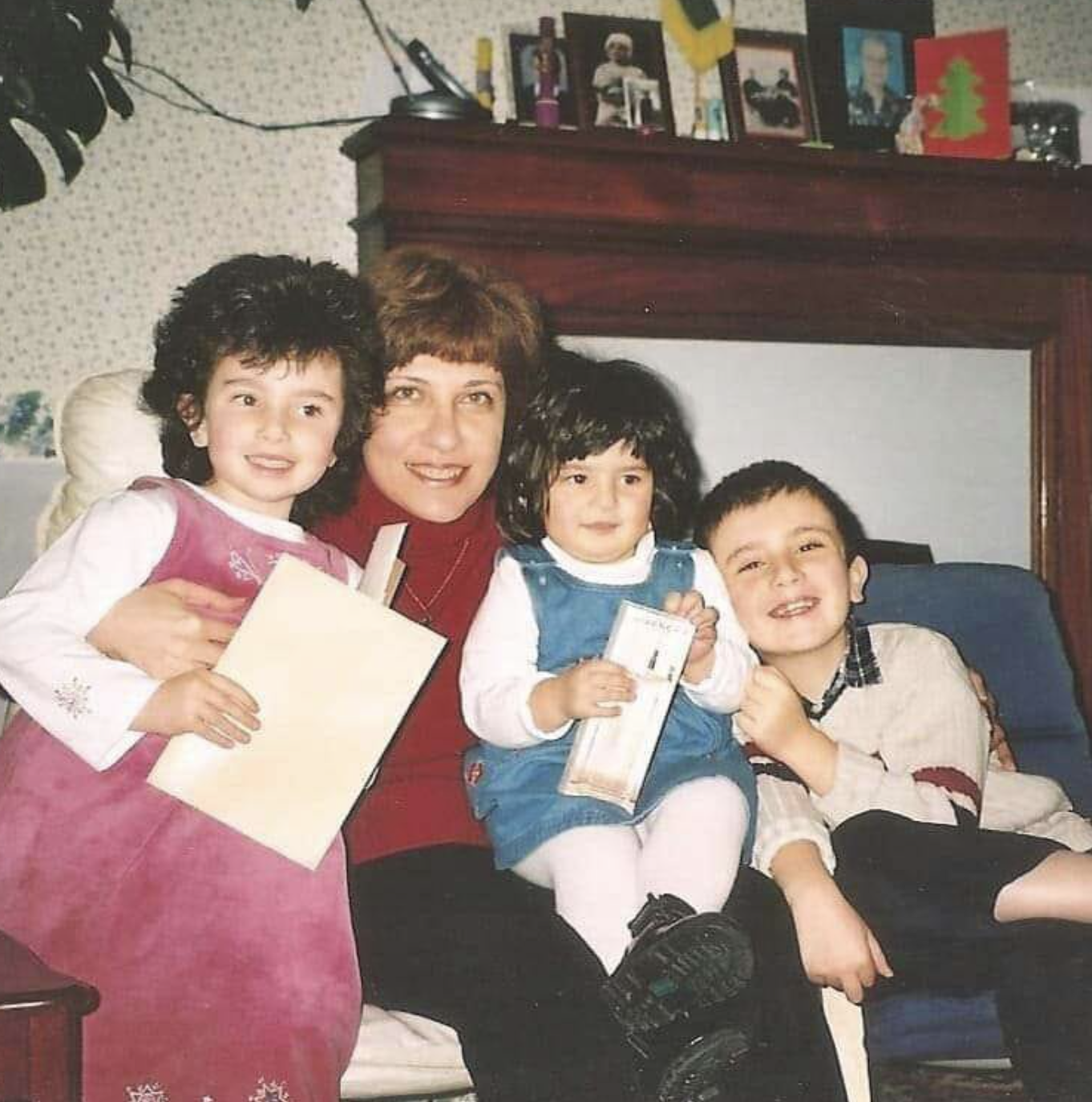
Supporting Kurdish doctors and medical professionals
Khoshnaw has always been proud of being a Kurd and used every opportunity to promote her Kurdish identity, history, and culture. “This has been the drive for me to act as a mentor and coach for a few Kurdish doctors in the UK and in Kurdistan. On a wider scale, I have also been very supportive of international medical graduates seeking a career in the UK,” she added.
Khoshnaw’s special interest is medical education. Parallel to her role as a clinician, she has pursued this interest by taking on educator roles at local, regional, and national levels. She is currently the Director of Medical Education at the Royal Surrey NHS Foundation Trust, an examiner for the Membership of the Royal College of Physicians Exam, and a fellow of the Academy of Medical Educators.
Khoshnaw is also an Honorary Visiting Associate Professor in Medical Education at the School of Medicine at the University of Kurdistan Hewler (UKH). She is keen on being more involved with improving medical education and training in Kurdistan and passionate about transforming health services in Kurdistan. “I believe this could be achieved through investing in public health services, enhancing payments and rewards for doctors and health care professions working in the public sector, and creating a robust regulatory system within the public and private health sectors. The current health system in Kurdistan and in Iraq as a whole, is ‘doctor-centered’ not ‘patient-centered’, which is contrary to my experience in the NHS,” she highlighted.
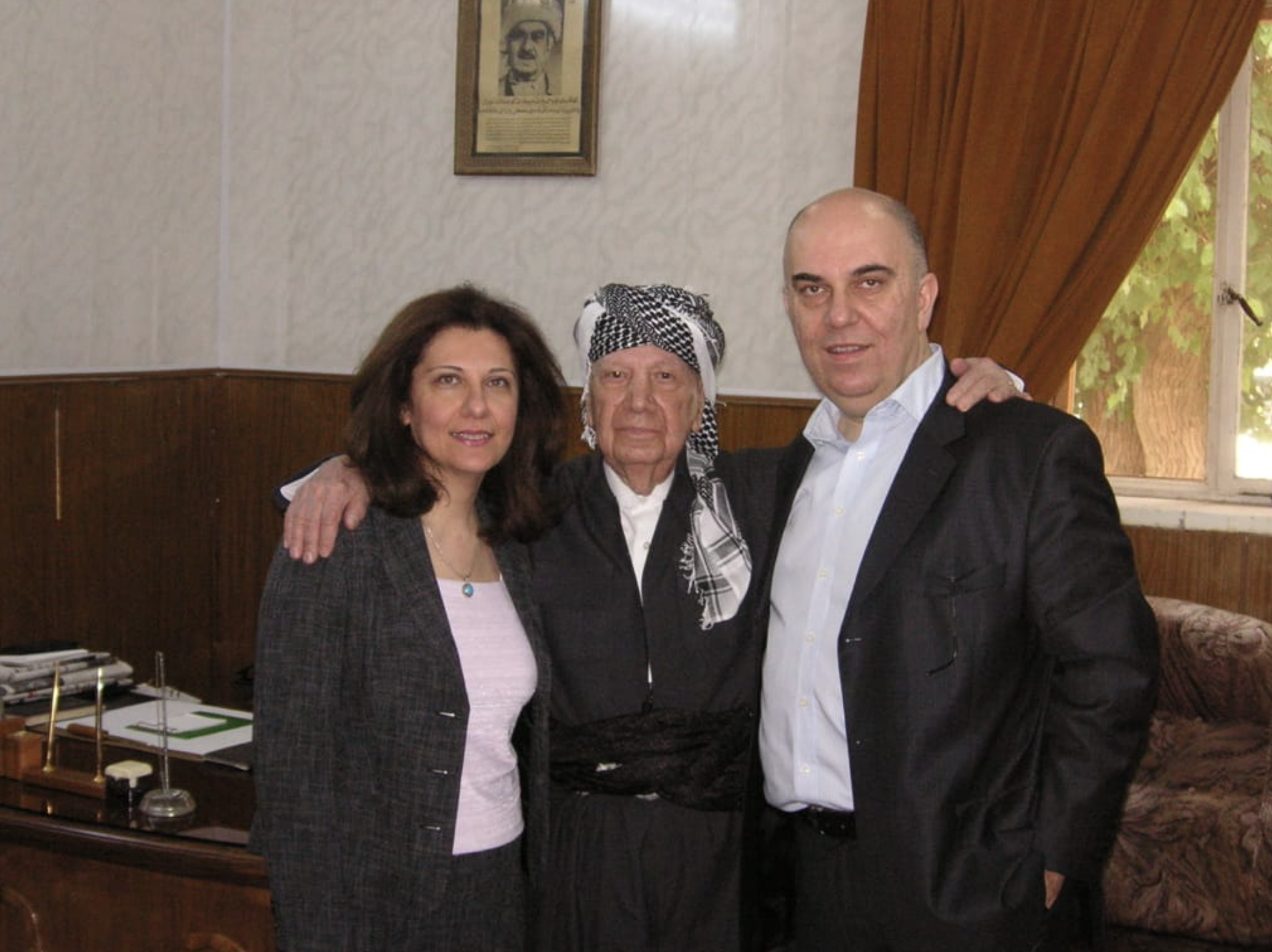
The Kurdistan Medical and Scientific Federation
I recently participated in “The Health and Success Conference” on behalf of Kurdistan Chronicle team in London, which was organized by KMSF. Khoshnaw is currently the Chair of the KMSF Board. Through this federation, Khoshnaw and her team aim to have a more structured approach in supporting Kurdish doctors and professionals in the UK and to celebrate Kurdish identity.
KMSF was established in 1988, initially under a different name, the Kurdish Scientific and Medical Association. Over the years, it has undergone changes to meet the demand of the growing number of Kurdish medical and scientific professionals in the UK. Khoshnaw joined the organization in 2000 and was elected as a board member soon thereafter. She has been the board’s chair now for several years.
Today, KMSF has become the voice of Kurdish doctors, healthcare professionals, academics, scientists, and postgraduate certificate holders residing outside of Kurdistan. Their mission is to promote cooperation, unity, and excellence among their members while advancing healthcare standards and scientific research in the Kurdistan Region.
Through networking, support, and collaborative initiatives, KMSF provides valuable resources and opportunities to its members. “We organize conferences, seminars, and research projects, fostering knowledge exchange and career development. We also organize social events aiming at fundraising to support cancer care hospitals in Kurdistan,” Khoshnaw related.
When asked about her plans to leverage her expertise to enhance the healthcare system in the Kurdistan Region or to build connections supporting healthcare initiatives through KMSF, Dr. Khoshnaw shared that she has been collaborating with medical schools in Kurdistan since 1997. Her efforts began with collecting books, journals, and teaching materials during the years of the embargo on the Kurdistan Region in 1990s.
However, since 2001, Khoshnaw has visited Kurdistan regularly as an external examiner for medical schools and has delivered lectures and workshops to help schools develop their faculty. “I supported Hewler Medical University to develop their education department. More recently, I have been involved in the design and delivery of a postgraduate degree in medical education at the School of Medicine at UKH,” she said.
Her ultimate aim is to return to Kurdistan permanently and devote her time to medical education and improving health services in Kurdistan, drawing on her experience with the NHS.
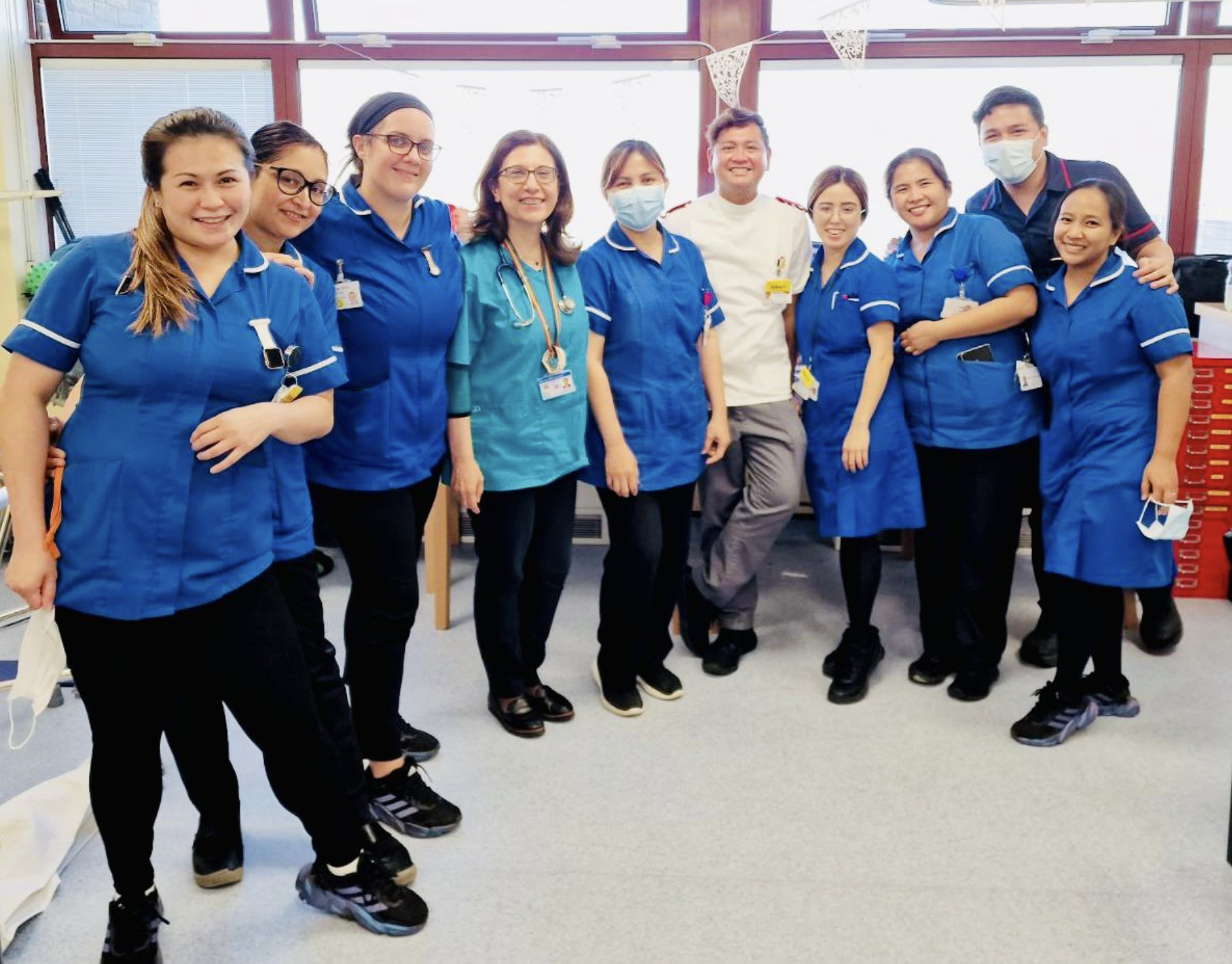
Kurdish community in London
While I was in London, I could not help but notice how active the Kurdish community was, and was eager to know the secret behind this. I also observed that the new Kurdish generation born abroad were so familiar with Kurdish culture and language.
I asked Khoshnaw about this, and she highlighted that the Kurdish community in the UK has a wealth of talent and expertise. “In recent years, KMSF has focused on bringing together this valuable resource through networking, effective communication, and organizing high quality seminars, to celebrate the success and achievements of Kurdish talent,” she said.
All KMSF activities are organized and delivered on a voluntary basis, which reflects the dedication and commitment of their members and executive board. Its aim is to raise awareness in Kurdistan of this largely unrecognized and underutilized resource and to build bridges between Kurdistan and the medical and scientific community in the UK.
“One of our main goals within KMSF is to promote Kurdish identity, culture, and language among the new generation of Kurdish youth in the UK. Without our language, we will not survive,” she exclaimed.
Khoshnaw has also contributed to several schools in London and other parts of England, where the Kurdish language is being taught to children by Kurdish speaking teachers.
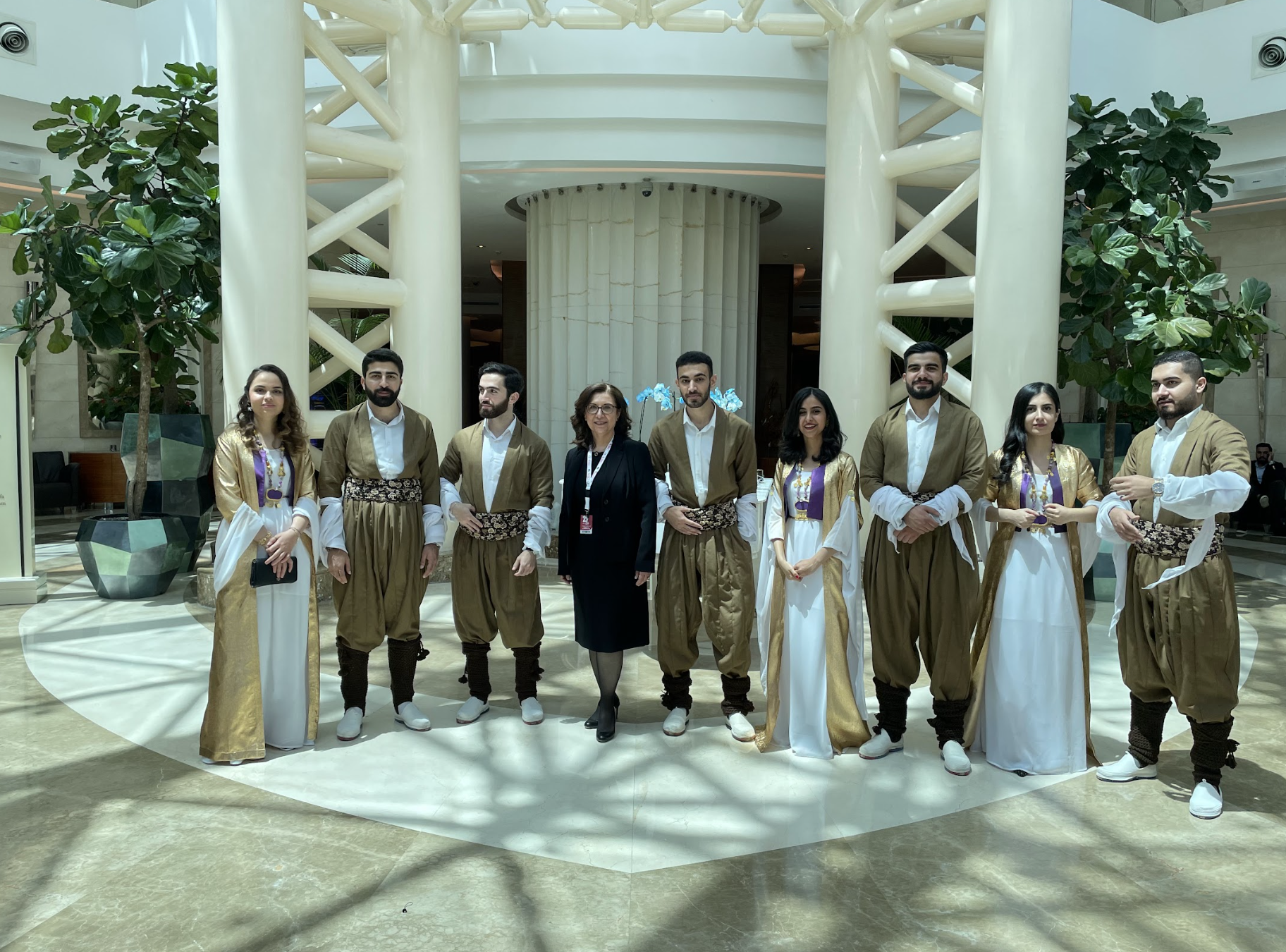
Outside of medicine, Khoshnaw strives to maintain a good work-life balance. “I always make time for family and friends. My nephew Bayad and my two nieces, Bayan and Neyan, are the joy of my life, and I try to spend as much time as possible with them. I enjoy travelling and learning about new cultures as well, and I am very organized with booking my annual leave in advance,” she said.
“I also enjoy reading poetry and listening to music. Cooking wasn’t my passion to start with, but now I use it as a means of relaxation and mindfulness. Also, nothing is more relaxing than sitting on a comfortable sofa, watching a good movie with a cup of tea,” she added.
Khoshnaw’s success story is inspirational for many younger Kurds in Kurdistan and abroad. When I asked her what her advice for young people was, she replied that, “wherever they reside, they should be proud of their Kurdish identity, believe in themselves, and be confident about their capabilities. With the right attitude and hard work, they can overcome barriers and succeed. The next generation is the hope for a better future for our nation, so be passionate about introducing new ideas and implementing change. And, as Mahatma Gandhi said, ‘Be the change you wish to see in the world’,” she shared.
Goran Shakhawan is a Kurdish-American journalist and author based in the United States. He has covered news for several Kurdish news outlets and was a former senior correspondent for Kurdistan24 in Erbil and Washington D.C. He has published several books in Kurdish.
